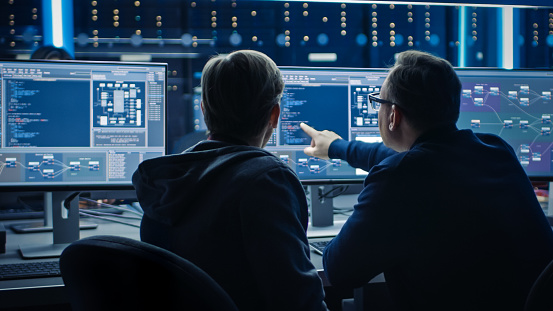A blockchain developer is a software engineer who specializes in designing, implementing, and maintaining decentralized applications (dApps) and blockchain technology solutions. They have expertise in programming languages such as Solidity (for Ethereum), Python, and JavaScript, as well as experience with blockchain platforms such as Ethereum, Hyperledger, and EOS.
A blockchain developer’s responsibilities may include:
- Designing and building smart contracts, which are self-executing contracts with the terms of the agreement between buyer and seller being directly written into lines of code
- Developing decentralized applications (dApps) that run on a blockchain network
- Integrating blockchain solutions with existing systems
- Writing and executing tests for smart contracts and dApps to ensure their functionality and security
- Debugging and fixing any issues that arise in the blockchain network or dApps
The demand for blockchain developers is growing rapidly as more and more businesses and industries look to adopt this technology for their operations.
Blockchain technology offers a secure, transparent, and decentralized way to store and transfer data, making it a valuable asset for various industries such as finance, healthcare, and logistics.
A strong understanding of cryptography, distributed systems, and consensus algorithms is also important for a blockchain developer, as well as familiarity with security considerations for decentralized systems.
They should also have an understanding of how decentralized systems operate, including how nodes on the network reach consensus and how transactions are processed and confirmed.
In conclusion, a blockchain developer is a specialized software engineer who plays a crucial role in the development and implementation of decentralized applications and blockchain solutions.
They bring a unique skill set that allows organizations to leverage the benefits of blockchain technology and stay ahead of the curve in an ever-evolving technological landscape.

